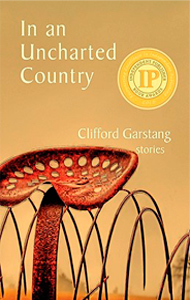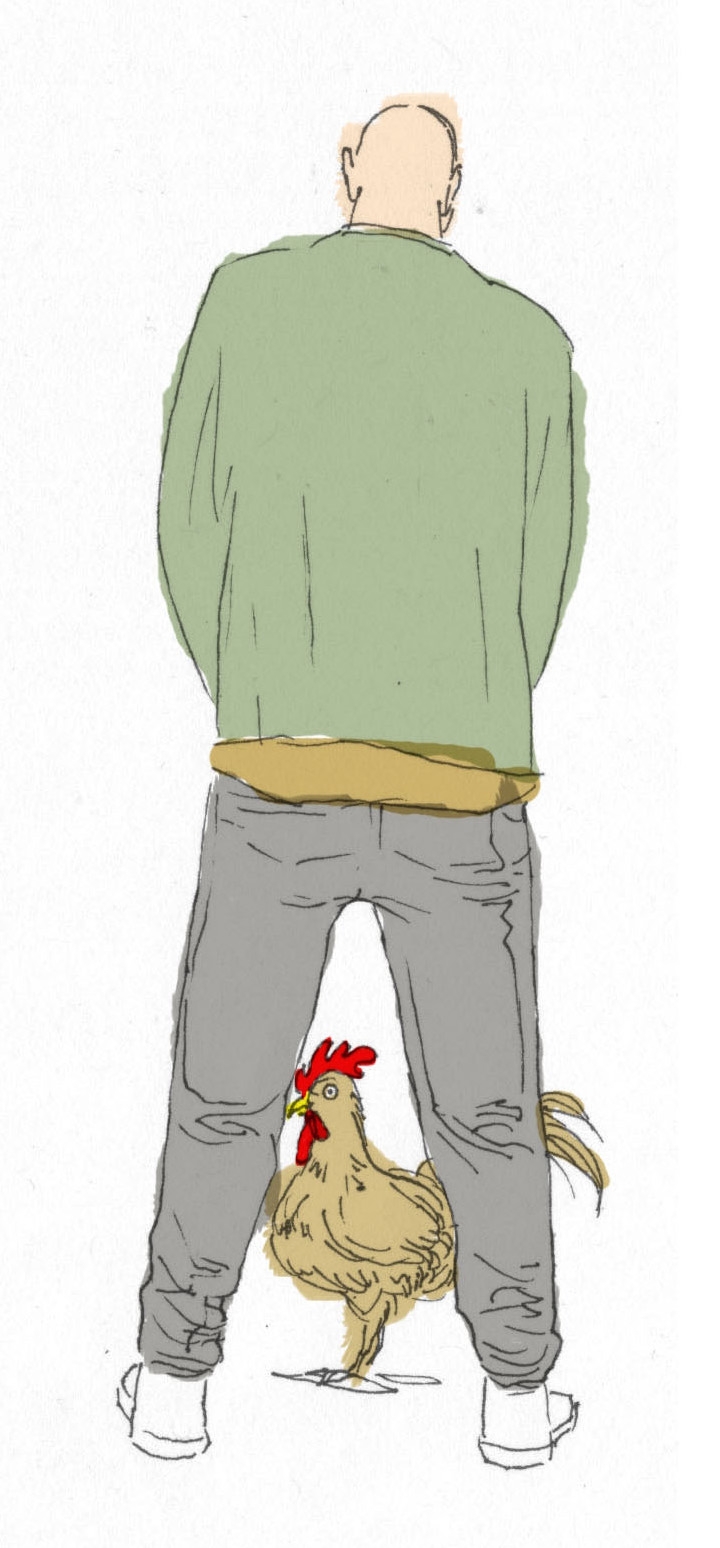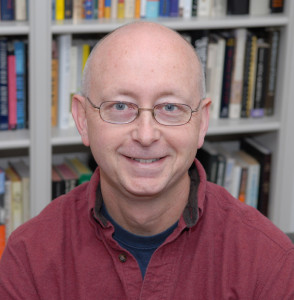Virginia Pye: In your two collections of stories, a specific setting plays an important role in defining the parameters of your characters’ experiences. In In an Uncharted Country, it’s rural Rugglesville, Virginia, and in What the Zhang Boys Know, an apartment building in Washington, D.C. Do you have a sense why location is so important to you and how you use it to help you delve more deeply into character?
Clifford Garstang: I think setting is a critical element in fiction, one that can work on a couple of levels to affect the experience of reading. On the one hand, by creating a setting that is both fresh and familiar at the same time, a writer can make a reader both comfortable when he or she enters the fictional world and also curious about that world. On the other hand, the setting needs to contribute to the underlying meaning of the work. In the case of In an Uncharted Country, the rural setting was meant to evoke a certain kind of community in which the quirky central characters would feel like outsiders—that is, it’s not terribly diverse, its values are traditional. As for the condo building in What the Zhang Boys Know, in some ways I was going for the opposite—an urban dwelling that throws together a wide range of people who have to deal with living in close proximity with humanity. There’s another point to be made here, too. These are both linked collections of stories, and setting is one way in which the stories are tied together. And you don’t get the setting all at once, which is the beauty of this form for me.

VP: You have chosen to write novels as collections of stories. While this method has been employed by authors for a long time, its use is often still questioned. As a narrative choice, it allows for a kaleidoscopic vision of character: we see them from completely different angles and perspectives when glimpsed in diverse stories. Can you tell us some of the advantages of writing novels in stories? Are there any disadvantages and do you think you’ll keep to that style or try a more traditional novel approach?
CG: One of the great advantages from the writer’s point of view is to be able to inhabit many different characters and perspectives. Even in a tightly woven book like Olive Kitteridge by Elizabeth Strout, some of the stories focus on characters other than Olive herself. In the classic example of the genre, Sherwood Anderson’s Winesburg, Ohio, the same is true, and the character around whom the book is organized is sometimes completely absent. In my two books, I’ve enjoyed these shifting voices and personalities. Another advantage is that the writer can explore multiple themes without straying too far from the central story. In my new book, for example, there is an over-arching narrative, but a few of the stories about some of the residents of the condominium building do swing away from that narrative for a while before circling back, although thematically they remain consistent. I don’t know that there are disadvantages for the writer or the reader of novels in stories, although agents and publishers still think these creatures are story collections and therefore are afraid of them. For now, though, I’ve moved on and have written more traditional novel forms.

VP: One of your reviewers has commented that your depiction of the apartment building in D.C. is “the Winesburg, Ohio of the 21st century.” Your setting has people of different races and backgrounds and thoroughly different experiences. Did you intend for it to encapsulate America today? And, if so, what does that say about our country now?
CG: I was terribly flattered by that Winesburg, Ohio comparison. I don’t think I intentionally meant for the diversity of the condo building to be saying anything about America, however; it simply reflects my own past experiences living in urban environments. But the diverseness of the residents of the building certainly was intentional, because I wanted to show that all of these very different people share things, not all of which will be immediately apparent. We are an incredibly diverse country, whether or not some people want to admit it. And we’re all witnesses for one another in ways that we sometimes don’t realize.
VP: You seem to have traveled extensively and have lived in Asia. Your central characters in the most recent collection are Chinese-Americans, some very recently arrived. Why were you drawn to write about immigrants? Have you ever felt like one yourself when in other countries? What does the immigrant experience show us about our country?
CG: Oh, this is complicated! For several years before I began writing this book I was traveling frequently to China. I’d been studying Chinese and reading a lot of Chinese history. And when I was imagining who my central character would be I wanted to find someone unlike me—someone about whom a reader might be curious and without firm expectations. So it doesn’t surprise me that I chose a Chinese immigrant. But this particular immigrant is married—or was married—to a Caucasian, and so their children are mixed-race. That blending of cultures was something I was really interested in. But also, the immigrant experience is one that provides built-in tension. It’s very unsettling to be thrust into an unfamiliar environment. And yes, I certainly felt that way on each of the occasions I’ve lived abroad, even though I knew that I wasn’t making a permanent home there. We’ve already touched on this, but I think it’s important to remind ourselves, just by looking around, that almost everyone is an immigrant.
VP: The Replacement Wife, one of the central stories in What the Zhang Boys Know, is told from the perspective of a young, Chinese-American woman. Although it’s a overused question, I can’t help but ask how the voices and experiences of your characters come to you, especially when they are ostensibly so very different from you as a white, male American.
CG: It’s a question I get a lot, particularly because the stories in my first collection were also from various points of view, of people who are very different from me. How do the voices and experiences come to me? I like to think that I’m an observant person—most writers are, I think—and I’ve traveled a lot and worked with a lot of people in my life. So I’ve seen and observed people like the people I write about. Yet, even though these people are different, we share a lot, too—we have similar emotions, we live in the same place and time. Years ago, a writing teacher recommended to me a book called An Actor Prepares by Constantin Stanislavsky. It’s an acting text, but there’s a lot that’s relevant to writers, too. He writes about “emotion memory,” a technique for calling on your own emotions to portray the emotions of a character. That’s what a writer needs to do, too. But I can’t discount the role imagination plays, too. Sometimes you just have to imagine the characters, provide them with appropriate emotions, and let them loose.

(Read “The Year of the Rooster” by Clifford Garstang)
VP: I’m curious about your decision to become a writer. Many people talk about the books they’d love to write, but they never get around to it, because they’re caught up in making a living in some other way. Weren’t you an established, successful professional in an altogether different field and then, in near-middle age, didn’t you decide to toss it all and take up writing full time? Had you written at an earlier point in your life and always longed to return to the practice? What propelled you to take the chance on becoming a writer, especially when your previous employment was so secure?
CG: Oh, my, but this is a long story! The short version is that I knew going to college that I wanted to write fiction, and I tinkered with it in school. But each choice I made after graduation took me further away from writing—first the Peace Corps, then law school, then international law practice, then international development consulting, then the World Bank. And along the way I did try to write a little, but nothing serious. Finally, as the new millennium approached, coinciding with the 20th year of my law practice, I decided that the time was ripe to take a leap and pursue my old dream. My friends and colleagues thought I was nuts. They may have been right.
Virginia Pye’s debut novel, River of Dust, is forthcoming from Unbridled Books in Spring, 2013. She holds an MFA from Sarah Lawrence College and has taught writing at the University of Pennsylvania and New York University. Her award-winning short stories that have appeared in numerous literary magazines, including The North American Review, Tampa Review and The Baltimore Review


Pingback: “The Year of the Rooster” by Clifford Garstang | Rkvry Quarterly Literary Journal